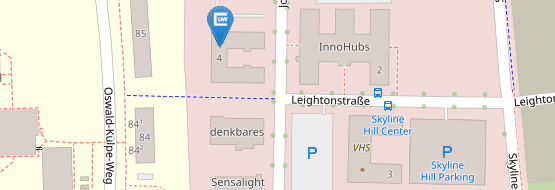Coaching
What is the difference between counseling and coaching? First of all: There is some overlap. Here are the definitions we work with:
- Counseling is usually about providing you with a specific piece of information or with advice from someone who knows more about a particular matter than you do. In many cases, one counseling session will be enough to help you,
- Coaching is a process. It is about guiding you on your way to success, e. g. by helping you define your goals and devise strategies for reaching them. The coach’s role is to accompany the process, equip the coachee with methods and techniques and give critical input.
Together, we will find out which type of guidance is right for you in your specific situation.
The counseling approach
You are looking for external support with challenges facing your career in research? We offer you this opportunity and are happy to share our expertise and methodological knowledge on skills, personal resources, development opportunities, the job market in both academia and industry, application strategies and other related topics with you during a personal counseling session.
In a counseling session, we can
- discuss ways to advance your career.
- help you prepare application documents that are tailored to suit the job you're applying for.
- help you prepare for job or selection interviews.
- help you analyse and visualise your personal competences.
- give tips on your application strategy.
- help you get a realistic idea of the career prospects open to you both in research and outside academia
The average counseling session is 15 to 60 minutes, depending on your issue. We will clarify your issue in advance over the phone (or per email) so that we can prepare for your session.
In a typical counseling session, we will give you input and show you how to apply that input to your particular situation. We will accompany this process. We will provide you with the necessary support and guidance and will equip you with appropriate methods to help you reach your goals independently.
The coaching approach
Your coach will help you tap into your resources and potential to develop solutions that are tailored to your unique challenges. Using a range of tools, he or she will show you how to develop a better awareness and understanding of how you act and get a clear idea of what you want to achieve and how you can get there. Your coach will give you the inspiration to make any changes to the way you act that may be necessary, and you will get the chance to find out whether the steps that you want to take to reach your goals actually work in your specific situation or whether you will need to adjust your strategy. Remember: Coaching is not just about reaching goals, it’s also about what you learn along the way.
Coaching can help you
- define your professional goals and devise strategies for reaching them.
- be well prepared to land the job you want.
- deal with the challenges you are facing in your daily work.
- critically reflect upon role expectations and deal with them in a constructive manner.
- work your way towards a particular goal.
The average coaching session is about 60 minutes. Since coaching is about working on an issue continuously and intensively, it usually requires a time commitment of multiple sessions. How often and at what intervals you will meet is up to you and your coach to decide. You will usually work with one of the Research Academy’s in-house coaches, but if you want, we can also help you find an external coach.
A typical coaching process is divided into different stages, each of which will be tailored to suit your particular needs. Before we start the coaching process, we will have an orientation meeting with you. During this meeting, we will find out if coaching is actually the right tool to use in your particular situation and if it is, will define the key areas that you and your coach will work on. The coaching itself will generally follow these stages:
- Stage 1 - Analyse your specific situation
- Stage 2 - Define your goals
- Stage 3 - Devise strategies for reaching them
- Stage 4 - Review those strategies/ideas
- Stage 5 - Determine how to implement those strategies/ideas into your everyday (work) life


